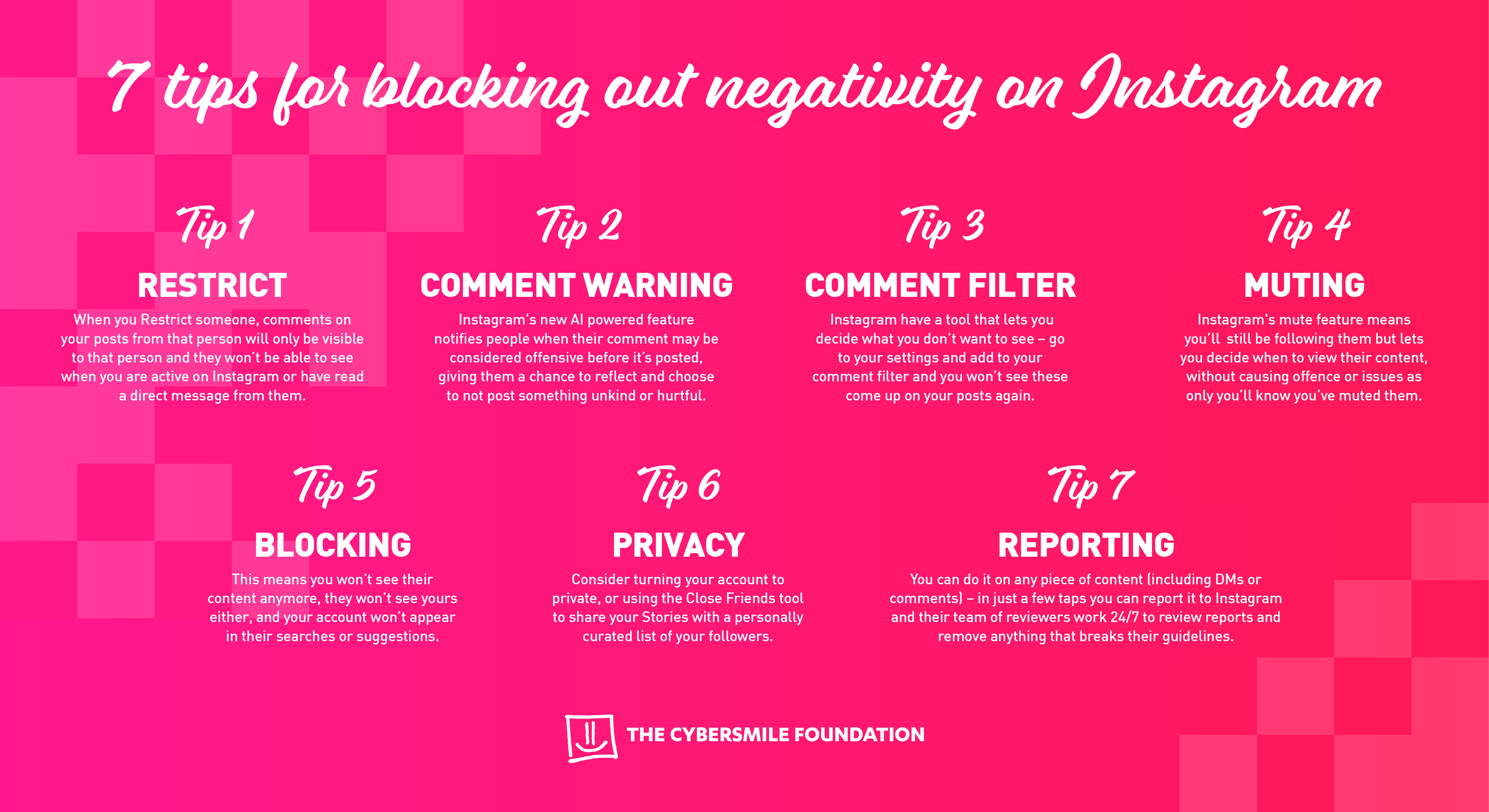Zoe Sugg, Chessie King and comedian Mo Gilligan have teamed up with lovely teams over at Cybersmile and Instagram to launch the Banter or Bullying campaign.
The Banter or Bullying campaign is a joint venture with Instagram as part of Bullying Awareness Week. It explores and highlights attitudes towards banter and bullying online. The aims of the campaign are for people to learn more about how individuals are affected by banter while reinforcing how being mindful of the fine line between banter and bullying is important.
“I SHARE A LOT OF MY LIFE ONLINE AND I KNOW FIRST-HAND HOW DAMAGING IT CAN BE TO BE ON THE RECEIVING END OF HATEFUL COMMENTS. I TRY TO IGNORE NEGATIVE COMMENTS ALTOGETHER, BUT WHEN I DO RESPOND, I’M OFTEN TOLD THEY’RE ‘JUST BANTER’ AND THAT I SHOULD LET IT GO. BANTER IS NEVER AN EXCUSE FOR BULLYING; THEY ARE DIFFERENT THINGS. ONE SHOULD MAKE YOU LAUGH, THE OTHER DOES THE OPPOSITE.”
Zoe Sugg, Founder of Zoella
Cybersmile and Instagram have worked together on a new national study in the U.K. to learn more about the relationship between banter and bullying.

Participants in the study were aged between aged 13-18 and they were asked a series of 11 questions to share their thoughts on the fine line between banter and bullying while exploring the effects of banter on the wider community.
- 49% of respondents said that the term ‘banter’ was best described as “A friendly way to make fun of people which is not serious or offensive.”
- 64% of respondents said that they either ‘loved’ or ‘liked’ banter.
- 51% of respondents that were asked if they think calling something ‘banter’ is sometimes used as an excuse for bullying answered yes. Only 17% of respondents said that they didn’t know, and 33% said no.
- 65% of respondents said there was a clear difference between banter and bullying, with only 21% saying there wasn’t, and just 14% saying they didn’t know.
- 35% of respondents said that the line is crossed from banter to bullying “when people tell me I’ve gone too far.” And 71% said that “When it makes people feel scared or intimidated.”
- 81% of respondents said they felt they understood the difference between banter and bullying.
- 47% of respondents said they had personally been left upset or insulted by banter on at least one occasion.
- 66% of respondents said that they had noticed somebody else left upset or insulted by banter on at least one occasion.
- 45% said they had been offended or upset after witnessing banter as a bystander on at least one occasion.
- When asked how often they see others left upset or insulted by banter, 38% of respondents said that they had seen it at least once a week. 7% of respondents said they had seen others left upset or insulted at least once a day.
- 85% of respondents said they had never excused a bullying interaction made by themselves as banter.
The findings from the report highlight just how important it is to think before we post something online.
Let us know your thoughts on the research at @CelebMix!

